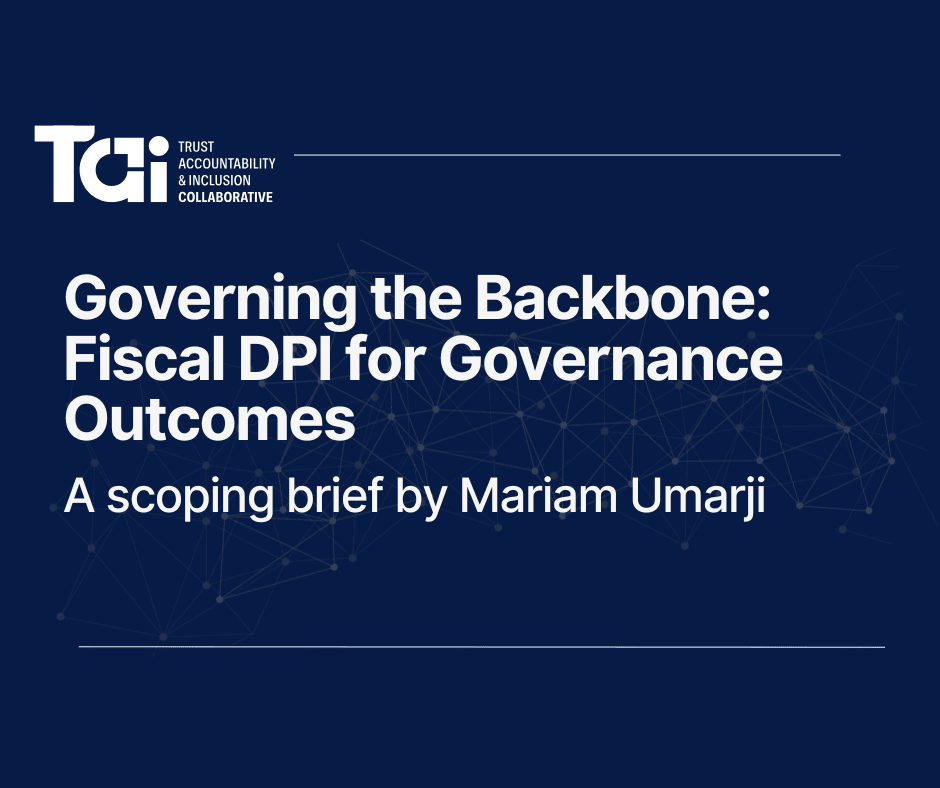As governments increasingly digitize their fiscal systems—from budgeting and procurement to audits and social transfers—fiscal digital public infrastructure (fiscal DPI) is rapidly becoming the backbone of public financial management.
A new exploratory scoping study, Governing the Backbone: Fiscal DPI for Governance Outcomes, commissioned by the Trust, Accountability, and Inclusion Collaborative (TAI) and authored by Mariam Umarji, examines the governance implications of this transformation. The brief highlights how fiscal DPI design and implementation choices are shaping transparency, participation, accountability, and inclusion (TPAI) in public finance.
Drawing on interviews with funders, implementers, and civic actors, as well as a rapid review of tools, cases, and standards, the study identifies critical governance gaps and emerging opportunities. It warns that while fiscal DPI offers major potential to strengthen state capability and trust, efficiency-first and vendor-driven approaches risk institutionalizing opacity and exclusion.
The study outlines three priority actions for funders and reform partners:
Embed governance by design — integrating transparency, participation, and grievance mechanisms from the outset of fiscal DPI projects.
Develop shared benchmarks and standards — building digital-specific TPAI indicators through participatory, inclusive processes.
Invest in collective learning — enabling sustained coordination, South–South exchange, and honest assessment across the ecosystem.
As the brief notes, fiscal DPI is not politically neutral: it redistributes power and shapes who is visible, included, and empowered in the digital age. Ensuring these systems serve democratic accountability rather than control requires deliberate, coordinated investment in governance and inclusion now—before foundational choices become locked in.
Read and download the full brief here. You can also access the Executive Summary below:
